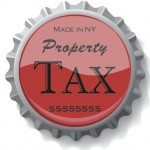A recommended 64 percent pay increase for New York’s state legislators would give lawmakers the highest inflation-adjusted salary in the nation and in state history. Read More
Latest Work
The fate of two government union-backed bills now awaiting Governor Andrew Cuomo’s signature will give an indication of how the governor will tackle major fiscal issues in his third term. Read More
New York’s statewide teachers union is collecting cash from about 6,000 fewer people than it was before the Supreme Court ruling that ended compulsory union fees for public employees. Read More
Seven years after its enactment, Governor Andrew Cuomo’s cap on property tax levies continues to be a target of unfounded criticism by some politicians and candidates who either don’t understand the cap or deliberately misrepresent how it works. Read More
Four months after the Janus decision, tens of thousands of New Yorkers are taking home bigger paychecks thanks to the end of forced union fees, having saved about $30 million in the last three months. The ruling brought New York unions in li Read More
State officials are still working overtime to shield government unions from the impact of the U.S. Supreme Court decision in Janus v. AFSCME. This week, Comptroller Thomas DiNapoli’s office has issued new guidelines effectively giving the unions the first say on efforts by employees to opt out of union dues payments. Read More
Desperate to minimize a potential loss of dues under a recent Supreme Court ruling, one of New York State’s largest public employee unions is telling public employers to disregard the union’s own previously stated conditions for letting workers stop paying dues. The tactic employed by the Civil Service Employees Association (CSEA) in response to the Janus v. AFSCME decision will put local governments in a bind—which is likely to end up generating added legal bills for taxpayers. Read More
This is only the latest instance in which politics seem to be taking precedence over public interest at a consumer-focused regulatory agency. Read More









